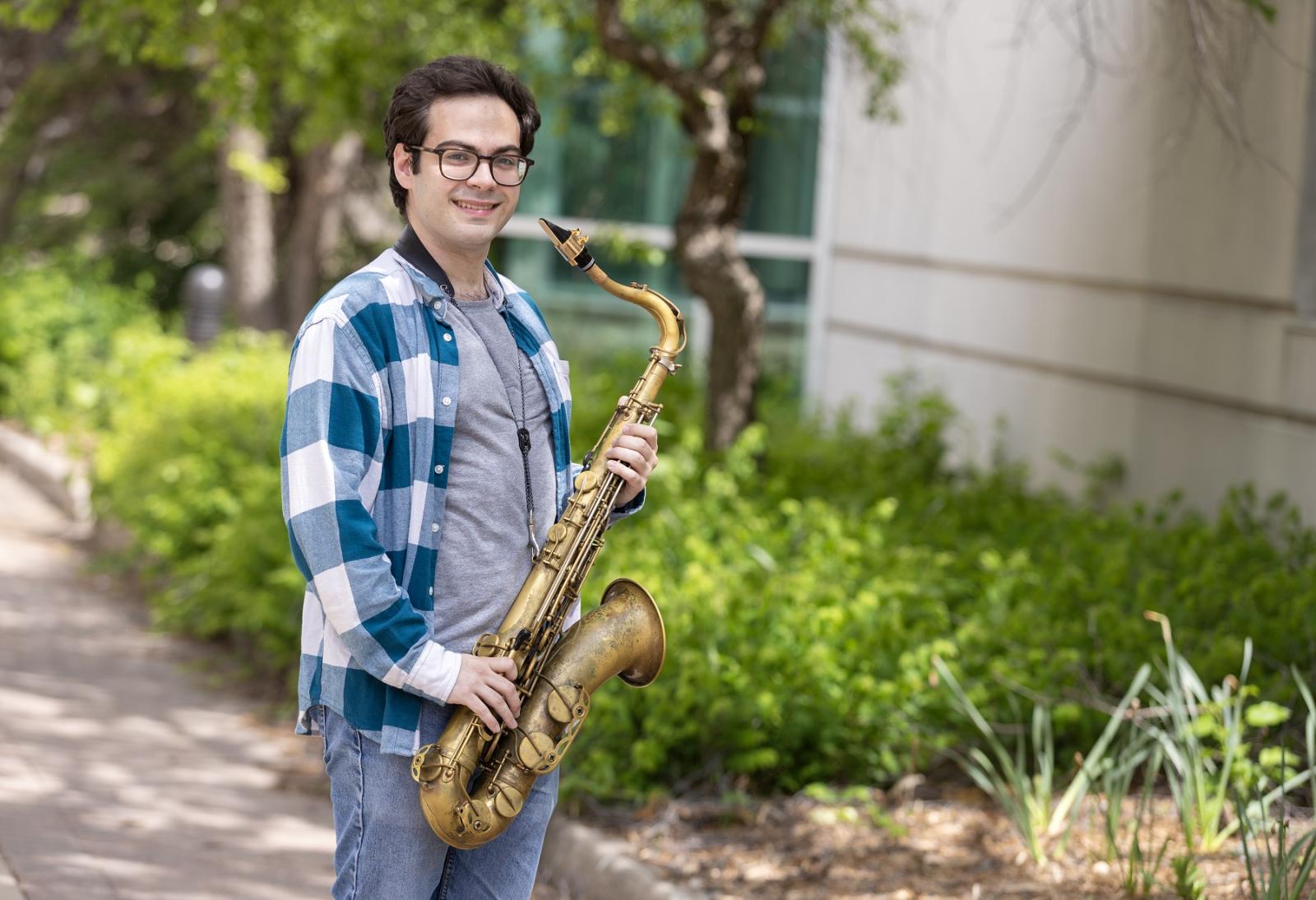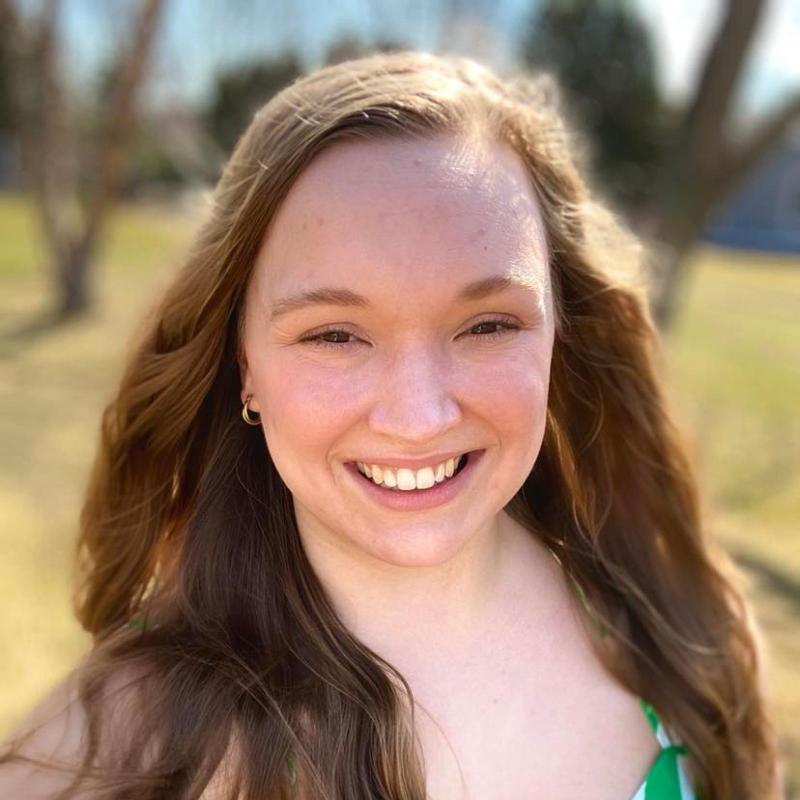Senior Eli Elder was working to solve the equation of what school would allow him to study within a traditional college setting and a world-class conservatory. He found there was only one answer.
Elder, of Highland Park, Illinois, chose to study at Lawrence University primarily because of the Bachelor of Musical Arts (B.M.A.) degree, first introduced as a degree option in 2019. The program offers students a 50-50 split between music studies and their choice of another field in the liberal arts landscape. Lawrence now has four degree options: Bachelor of Arts, Bachelor of Music, Bachelor of Arts & Bachelor of Music Dual Degree, and the B.M.A.
Elder’s field of choice was mathematics.
“(The B.M.A. program) allows me to study music and math in a really easy way that’s built into the fabric of the program,” Elder said. “I don’t have to jump through hoops to be able to study both.”
Although Elder had first intended to choose physics as his cognate, he said he was swayed by his math prerequisites. The professors and the classes were interesting to him, and he chose math as his concentration.
Even within the world of math, Elder has ample opportunity to embrace the liberal arts education at Lawrence.
“I’ve taken a lot of math classes, but I’ve also been able to take stats classes, computer science, poetry, pretty much whatever I want to,” Elder said.
Meanwhile, within the Conservatory, Elder’s focus is in jazz and contemporary improvisation with a concentration in jazz saxophone. The B.M.A. program allows students to audition for the Conservatory with a non-classical repertoire, creating an adaptable and modern path forward as a musician.
Integrate intellectual and musical virtuosity in a supportive community that will empower you to find your musical path.
Elder has been able to work with musicians and artists from across all genres and disciplines.
“The community, everyone is just so nice to each other, and there’s so many opportunities to collaborate with all different types of musicians, all different types of instruments,” Elder said, “and everyone’s just so willing and excited to.”
Elder also took his interests abroad with the Budapest Semesters in Mathematics Education. While in Budapest, he was able to learn about the Hungarian pedagogy of mathematics and how it's applied in middle schools and high schools.
One of the most prominent things he learned, Elder said, was the spiral curriculum. Instead of taking one subject each year, like most schools in America, Hungarian schools will touch on each subject, then circle back every year with more rigorous lessons.
Elder also learned about their inquiry-based and discovery-based learning. Instead of teachers lecturing and students taking notes, the class solves problems together, and their results allow them to fully understand the theorems.
For Elder, the trip was an eye-opening experience.
“The support that Lawrence gave me in applying, finding the program, getting funding was very, very helpful, and it was a life-changing experience for me,” Elder said.
Choose from a major in mathematics (with the option of a statistics track) or a major in mathematics-economics.
Following graduation, Elder plans to pursue his passion for mathematics and education by attending the University of Wisconsin-Madison to earn his master’s in curriculum and instruction for secondary mathematics.
He has also been equipped by his liberal arts education to bring the arts to the classroom—even the math classroom.
“Implementing the arts is definitely a great way to further education,” Elder said. “How can we relate these ideas? So, implementing (the arts) both on the student and educator side.”




